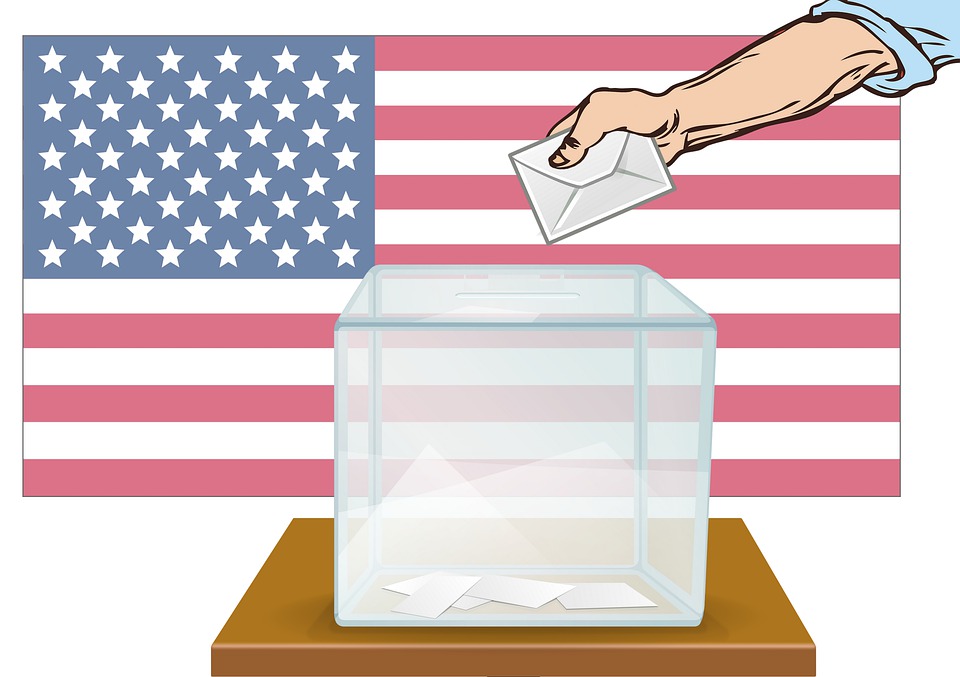Translating deep thinking into common sense
Why Only the Electorate Should be Able to Disqualify Trump

By Roger E. Bissell
February 19, 2024
SUBSCRIBE TO SAVVY STREET (It's Free)
Another Open Letter to the Justices of the United States Supreme Court
Dear Chief Justice Roberts and Justices Thomas, Breyer, Alito, Sotomayor, Kagan, Gorsuch, Kavanaugh, and Barrett:
The issue in question here is that of precisely which people who engage in insurrection are disqualified by Section 3 from serving in the federal government.
Much ink and many electrons have been spilled over various terms and phrases in Section 3 of Amendment 14 to the United States Constitution. The issue in question here is that of precisely which people who engage in insurrection are disqualified by Section 3 from serving in the federal government and whether or not the president and vice president are included. (Also, of course, if they are not included in Section 3, how else their insurrection should be assessed and dealt with.)
This section has rarely been invoked, but in the current election cycle, it is much more than an academic issue. Former president Donald J. Trump’s ability to qualify for unimpeded ballot access in a feasible electoral majority of states for the November election hangs on how you Justices of the United States Supreme Court choose to interpret a number of Section 3’s key terms and phrases. Energetic, if not ingenious, arguments on both sides of the issue have been offered, but the one provision of that section that seems to have escaped most attention is, I think, the very one that could clear the remaining obstacles to Mr. Trump’s ballot access in all 50 states.
For the sake of this argument, I will stipulate that (1) Mr. Trump did engage in insurrection on January 6, 2021 (however, as I have already argued in my first open letter, I believe that he did not engage in insurrection or “give aid and comfort” to the enemies of the United States); and (2) the offices of president and vice president are not only not mentioned explicitly in Section 3, but were not intended to be included in the catchall phrase “any office, civil or military, under the United States” either.
Now, it has been pointed out that preliminary drafts of Amendment 14 did name the offices of the president and vice president, and that the final version instead, in an effort to be more concise, merely included them, without naming them specifically, in the convenient catchall phrase “any office, civil or military, under the United States.” But is this the reason that the president and vice president—the heads of the Executive branch, which is coequal to the Congress—were removed from explicit mention in Section 3 and instead conveniently relegated to the vast grab bag of offices “under the United States”? If so, this might be the only instance in which the Constitution makes reference to those high offices without naming them!
Or is there perhaps another, more basic reason for their exclusion from Section 3? The answer, I will suggest, lies in the clause in Section 3 that provides for removal of the stigma of insurrection. It reads: “Congress may, by a vote of two-thirds of each House, remove such disability.”
When a well-defined majority of the Congress approves something, it is taken to be just that: “the will of the people.”
The question that seems to be overlooked is: why is Congress empowered to remove this “disability”? And the answer is: because they speak for “We the People,” and when a well-defined majority of the Congress approves something, it is taken to be just that: “the will of the people.” In particular, then, “the people” acting through the Congress, can remove the disqualification-by-insurrection by a two-thirds majority vote from some individual who wants to serve a specified function in the federal government.
This works perfectly well and appropriately when applied to people seeking to join the Congress or to become a presidential or vice-presidential elector. Such people come from specific districts or states, and they do not represent “We, the People of the United States,” but just the people of their own district or state. It also serves well to safeguard all the appointed offices in the federal government, so long as such appointments are by two-thirds vote of each House, instead of by any smaller majority.
But what about the president and vice president? They represent the entire United States, not just some district or state. Is the Congress required to act in loco populi for the American people in their cases, as it is for all the others? Or is there another mechanism by which “We, the People” can remove the stigma from the chief executive(s), thus avoiding the breach of separation of powers that Congressional forgiveness of a presidential candidate would entail?
Yes, to the latter. That mechanism is the quadrennial national election of president and vice president. Just as a well-defined majority in the Congress (or either House) counts as an expression of “the will of the people,” so does the electoral majority (currently 270 electoral votes) in the presidential election. The Congress is not needed to “remove such disability”—and that, I suggest, is why the president and vice president were not explicitly mentioned in Section 3, and not because they are somehow holding offices “under the United States” (which I instead take to mean: under the top level in each branch of the federal government).
When it is eminently practical to allow the people to speak directly—and when can we do so more clearly and unambiguously than in the quadrennial presidential election?—Congress does not need to speak for us.
In this day and age of big, conflict-ridden, central government, we sometimes forget that, in our system of constitutional government, the people are sovereign. When it is impractical to allow them to speak directly—such as on legislation before the Congress or, in the present case, removing the disqualification-by-insurrection from a district- or state-level candidate for federal office—Congress has been empowered to speak on their behalf. However, when it is eminently practical to allow the people to speak directly—and when can we do so more clearly and unambiguously than in the quadrennial presidential election?—Congress does not need to speak for us. It should remain silent on the matter and allow what democracy we still have to prevail.
It’s possible that the matter of Mr. Trump’s eligibility to run for president and to be on the ballot in all 50 states will be decided by you Justices prior to March 5 (Super Tuesday, when 15 states have their primary elections). I hope that when attempting to give your best interpretation of Section 3 of the 14th Amendment, in the face of its awkward construction and multiple ambiguities, you will come down on the side of allowing Mr. Trump to take part in the November election and allowing us voters to vote for the candidate of our choice. With all due respect, We the People don’t need our federal proxies or state officials to foreclose this option for us.
Thank you for considering my thoughts.
Roger E. Bissell
Dickson, Tennessee









